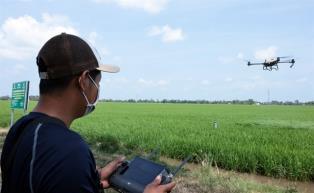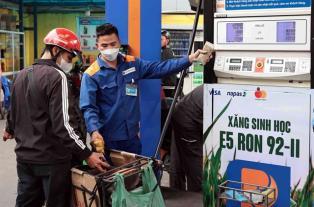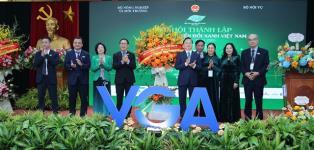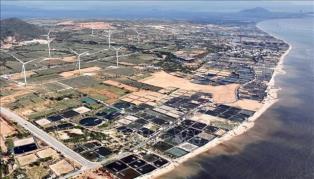The move illustrates how reducing emissions is not merely a cost but a 'priority pass' that can open doors to premium markets and elevate brand value.
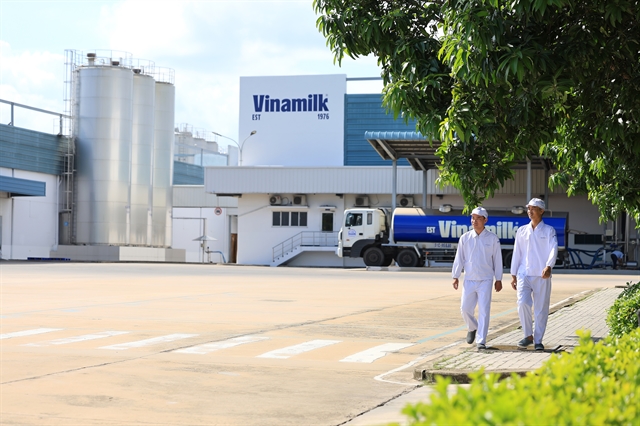
HÀ NỘI — A simple switch has delivered big results for Vinamilk in New Zealand, eliminating over five million plastic straws and driving nearly 80 per cent sales growth for its sterilised drinking yoghurt. This small packaging change proves that reducing emissions is not just a cost but a 'priority pass' to premium markets and enhanced brand value.
At the start of 2024, Vinamilk proposed its New Zealand importer trial a new lid design for the 80ml HDPE sterilised drinking yoghurt, one of the company’s key export products. The traditional round cap was replaced with a pull-tab 'pre-cut lid' that lets consumers drink directly without the need for a straw.
The trial quickly gained traction. Consumers responded positively, prompting the importer to place an immediate order for nearly one million units with the new design. In 2025, an additional 4.1 million products are expected to reach the shelves of New Zealand’s two largest retail chains, removing more than five million plastic straws from circulation.
Sustainability as a competitive advantage

“When sustainability becomes part of strategy, emission reduction is no longer a cost but a competitive edge,” said Lê Hoàng Minh, Vinamilk’s Executive Director of Production and Head of the Net Zero Project, at the 12th Vietnam Corporate Sustainability Forum (VCSF) held by VCCI in Hà Nội recently.
Citing the packaging initiative, Minh noted that installing a new capping system required investment, but the benefits outweighed the cost. In New Zealand alone, the improvement helped push market growth in 2024 to nearly 80 per cent, ranking among Vinamilk’s highest growth markets. In 2025, the innovation is expected to bring more than 20 per cent sales growth on top of that elevated base.
Equally important, Vinamilk’s reputation as a 'green' producer has been reinforced, giving it a competitive advantage in environmentally demanding markets such as the US and Australia. In fact, sales in Oceania grew by more than 56 per cent in 2024, with Vinamilk products now found at major retail chains including Costco, Woolworths, Coles, Aldi and Foodstuff.
These results build on a decade of preparation. More than ten years ago, Vinamilk began providing sustainability reports to international partners. Alongside adopting global standards such as ISO 9001:2015, FSSC 22000, ISO 17025, Halal and EU Organic, the company has completed greenhouse gas inventories and accelerated its Net Zero roadmap. It has also become the first dairy company to achieve carbon neutrality for both factories and farms, certified under PAS 2060:2014.
Turning emission cuts into brand value
General Secretary of the Vietnam Business Council for Sustainable Development (VBCSD) Nguyễn Tiến Huy praised Vinamilk’s approach of transforming emission reduction into a competitive advantage.
“This shows that sustainable development does not always require excessive costs. Sometimes, small improvements can create a big impact,” he said.
Research supports this trend. A Kantar report found that 22 per cent of consumers are actively changing their behaviour to shop more sustainably. A PwC survey showed more than 80 per cent of respondents are concerned about climate change, with 44 per cent willing to pay more for environmentally friendly food products and a further 43 per cent open to persuasion.
“This means that companies slow to embrace green transition and sustainability will face risks and may be forced out of the market sooner,” Huy added.
Agreeing with this view, Minh said green consumption is no longer a niche but a mainstream requirement across all market segments.
“This creates leverage to enhance brand value,” he said.
For Vinamilk, the payoff is already clear. According to the Food & Drink 2025 report by Brand Finance, the company ranks No 1 among the world’s three most valuable dairy brands. The ranking is based on factors such as loyalty and advocacy, investor appeal, pricing power and long-term growth prospects — all of which are directly influenced by ESG practices.
“In other words, sustainable development has shifted from a compliance cost to a strategic asset, directly boosting brand value in global markets,” Minh added. — VNS

